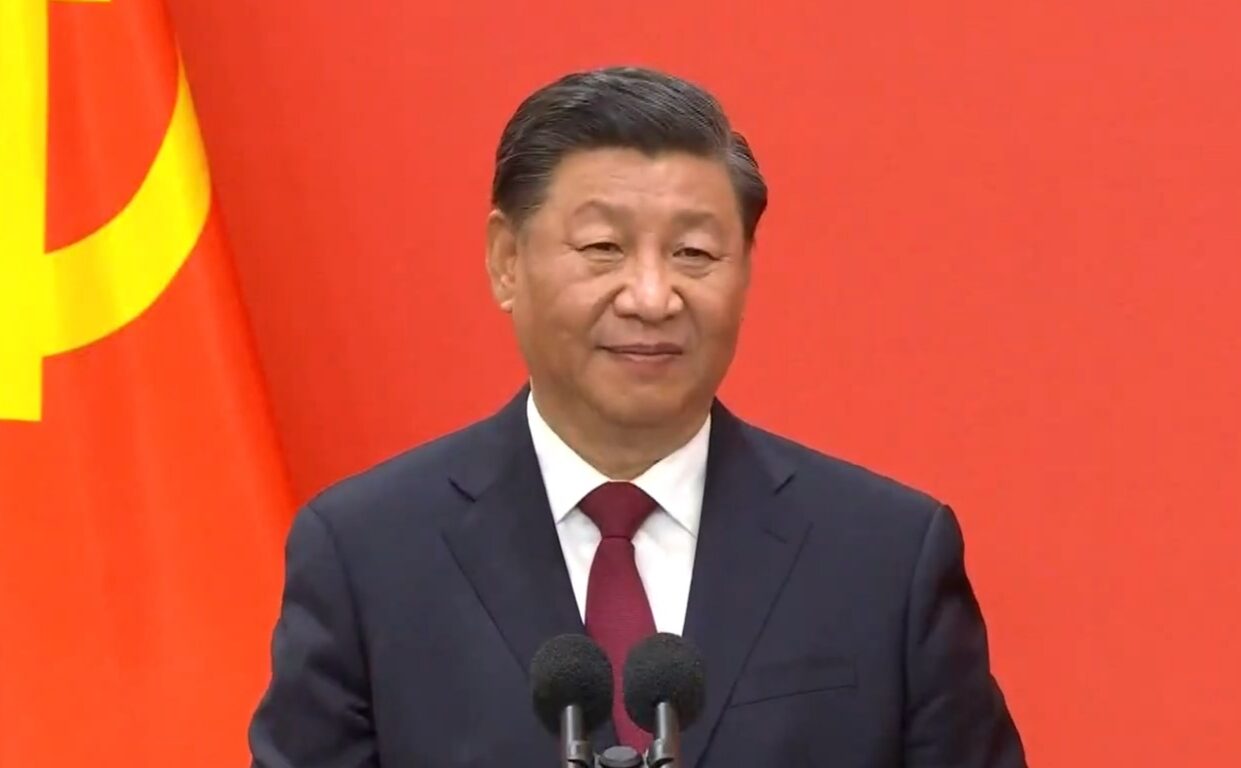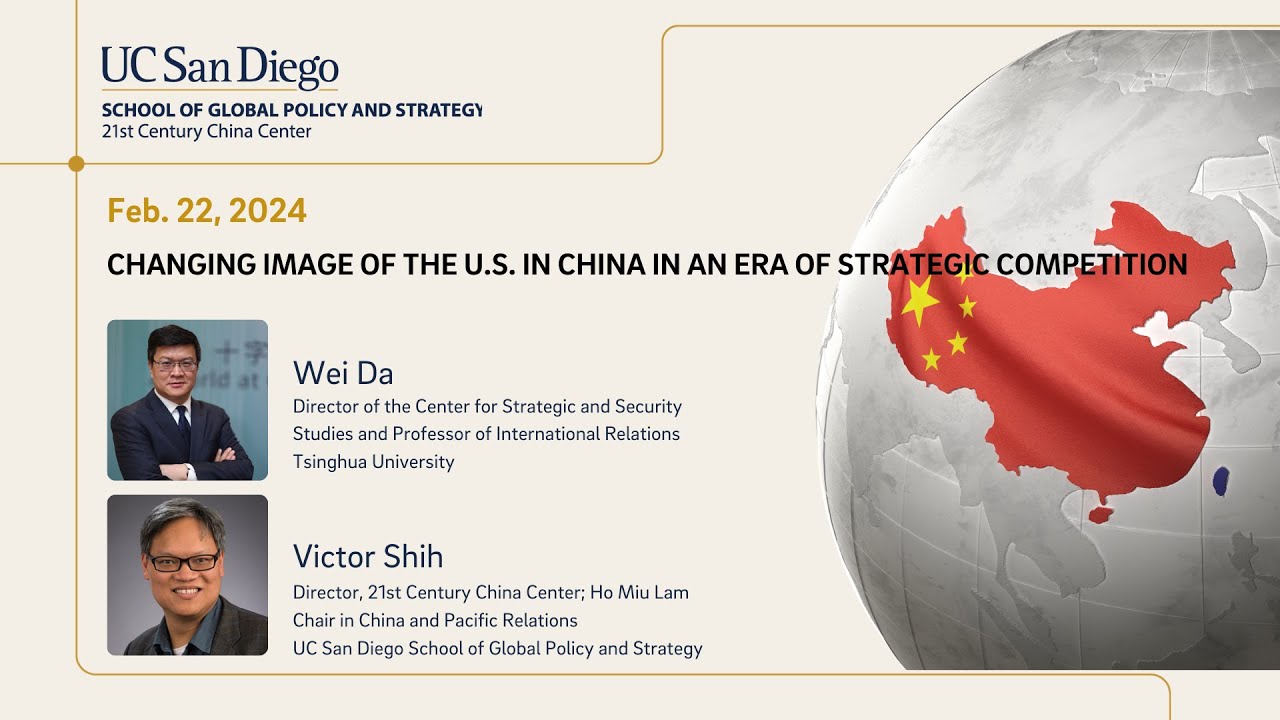Subversivo 4mo ago • 100%
1 - Its not paid for personal use.
2 - OP said it can't seed. Resilio have a discover helper service fot this situations.
Subversivo 4mo ago • 100%
I would use Resilio Sync. It uses bittorrent under the hood. https://www.resilio.com/individuals/
Subversivo 5mo ago • 100%
I believe Deng was a true communist, but many denguists, like Jiang deviated too much in the sense they became too obsessed with growth and forget about people.
What Hu and Xi did was to correct the course without letting go the achievements of reform, in a true dialectic way.
Subversivo 5mo ago • 100%
Lin Le received his PhD degree in Government from Cornell University in December, 2023. Before coming to Cornell for doctoral study, Lin Le obtained an M.A. in International Studies from the University of Washington at Seattle, an M.A. in East Asian Studies from Stanford University, and B.A. in Broadcast Journalism from Shanghai International Studies University.
He attended a college in China, but his graduate studies are in american universities. At this moment, he must be pretty much part of western academia and the chances of returning to China are slim.
 tnsr.org
tnsr.org
The text is pretty long academic paper (42 pages PDF) and reeks of liberalism, with remarks about the authoritarian and totalitarian aspect of Chinese society at every two paragraphs, but it's one of the most complete (in English, at least) recapitulations of the dialectical critic and superseeding of denguism inside the party. ::: my selection of most important parts (The text uses "conservative" and "leftist" as synonyms or, as we may prefer, real communists) The academia can't see Xi as a member and leader of a ideological movement, but only as a opportunistic dictator. > Unfortunately, the study of China’s elite politics has become increasingly detached from analyses of China’s economic and social policies. Leadership succession and political appointments in post-Deng China seem to have nothing to do with how China is governed and seem to be all about infighting and quarreling among the political elites behind the scenes. > The recognition that China’s reform has, in effect, ended under Xi’s conservative rule has nevertheless not brought back the analytical approach that emphasizes how deeply policy disputes can be embedded in elite power politics, and vice versa. After all, it is convenient to attribute all policy changes to Xi’s personal beliefs and choices. It is also convenient to use the factionalism approach to explain how Xi defeated his rivals. Hu began to guide the party back to marxism, after the reform excesses of Jiang. > it’s important to understand the broader purpose of the Scientific Development: It was a leftist attempt to subvert Jiang’s reformist party line. [...] In short, the Scientific Development concept was not just a simple policy readjustment, which is conventionally attributable to Hu’s personal policy preference to prioritize social equity and redistribution over GDP growth. It was put forward as a political weapon. Indeed, signs of this left-right tension and the conservative challenge to the political status quo were visible during Hu’s early days in power. The most widely known sign was Hu’s re-interpretation of Jiang’s theory in a speech,in which the priority of the Three Represents was unambiguously shifted to the last “represent,” i.e., the people, or “the fundamental interests of the overwhelming majority of the people of China.” Jiang’s original framing was meant to highlight the other two “represents” — that the party should represent “the development trends of advanced productive forces” and “the orientations of an advanced culture.” It was no accident that Hu did this on July 1, 2003. Hu’s speech was referred to as the new “July 1st speech” (七一讲话). This was an attempt to override Jiang’s “July 1st speech,” delivered one year earlier, in which he officially introduced the Three Represents. > In short, as a re-launched program modified to temper the initial “elitism” of the Three Represents, the Harmonious Society was originally a reformist response to leftist criticism. A new facade was set up with the core of Jiang’s theory retained. [...] the key message underlying the Harmonious Society was political inclusion. The commitment to motivating and mobilizing all of the “potential contributing forces” [...] > Hu decided that the Harmonious Society was not synonymous with socialism. Instead, the former should be based on and qualified by the latter — social harmony is an “essential attribute” (本质属性) of Socialism with Chinese Characteristics. This downgraded status was further confirmed as Hu also remarked that social harmony is a “natural part” (应有之义) of scientific socialism. And started to protect the party from capitalist sabotage from the inside > Another unmistakable sign that there had been a conservative takeover at the plenum was the conspicuous demotion of Jiang’s Three Represents. Whereas it had always been put on the party building (党建) agenda, now it was now demoted to a United Front issue (统战). The political agenda put forward by Jiang through this theory was no longer among the most important tasks that the party should prioritize. It was also an explicit veto of Jiang’s proposal that capitalists be allowed to join the party. Instead, the bourgeoisie would only be *coopted* but never *included*. But Hu didn't roll back on reform and opening. His goal was to produce a dialectic synthesis. > he warned that “the crux is not whether political reform is necessary or not; rather, it is a question of which direction.” > A second major sign of a leftist reorientation of the 17th Party Congress was the idea of “Ten Combinations” (十个结合). China’s reform must be “combined” with socialism. It appeared to be a deliberate attempt to override Jiang’s “Ten Lessons from the Past Experience” (十大经验), which, according to the party’s official narrative, provided the “practical foundation” for Jiang’s Three Represents. > Particularly worth noting is Hu’s talk of “integrating” (统一) market-oriented reform with the Four Cardinal Principles,179 which stressed the party’s political and ideological supremacy. The two were “interconnected and interdependent as a whole that is unbreakable.” Therefore, “never should one of them be over-emphasized over others” (不可偏废). > In short, the Ten Combinations was a new rhetorical vehicle for the leftists to underline the importance of being faithful to Marxism and socialism. Later, Hu’s statement on “integrating” would be cited by Xi when he stressed that “the goal of our reform and opening-up is to uphold and develop Socialism with Chinese Characteristics, rather than other isms” (不是要搞其他什么主义). Political tension and left-right infighting in the party was not linked to internal succession, rather, it's starts after the capitalist crisis of 2008, but the capitalist academia can't even state that. Maybe we can start to argue that the 2008 crisis gave the push the left in China needed to finally get ride of excess reformism. > Political tension jumped to a very high level in early 2009 and remained there until late 2014, when the party held its 4th Plenum of the 18th Central Committee. This time of extremely high political tension overshadowed almost all of Hu’s second term (2009–2012) and lasted into Xi’s early years. If we follow this picture to periodize Chinese politics, Xi’s formal accession to power in late 2012 did not mark the beginning of his era. It does not appear to have been a significant moment in Chinese politics. There was fierce political infighting before he took power and it simply continued regardless of Xi emerging as the new boss. Even after the left consolidating power, there is a good amount of opposition to Xi. > Xi’s “New Era” eventually arrived sometime around early 2015, when political tension dropped sharply, indicating that the intraparty political struggle was close to an end, probably because one political coalition (i.e., the leftists) had just dealt a fatal blow to its rivals (i.e., the reformers). Xi officially obtained his “core leader” status in 2016. > However, political tension in the post-2015 period did not fall back to pre-2009 levels. It was conspicuously higher than in late 2007. One possible reason is that, although the reformers were defeated, they had not totally lost their strength. This meant that the leftists had to keep fighting a bit longer before they could be completely rid of the reformist influence. In fact, there was an uptick in political tension around the 19th Party Congress held in late 2017, suggesting that the reformers tried to fight back on that important occasion. And even after the author recalls this amount of party ideological discussion and struggle, states that the leaders have limitations to their power, in the end he reaffirms that China is authoritarian. :::
Subversivo 5mo ago • 80%
Subversivo 5mo ago • 100%
Sorry anout the delay. The siteis iceshrimp.net
Subversivo 6mo ago • 100%
The problem is that Misskey code is bad. This is the main reason the forks exist at all. Iceshrimp is rewriting from scratch in C# and it's my main hope for the *keys.
Subversivo 6mo ago • 79%
Homescooling is a thing in backward countries like US.
Subversivo 7mo ago • 100%
No. Thays links to a self hosted Forgejo.
Subversivo 8mo ago • 100%
I have installed it to test, and can't fin a two column mode.
Subversivo 8mo ago • 100%
O libgen é bom para baixar o que você já que quer, mas ruim para pesquisar o que existe sobre o tema.
Subversivo 8mo ago • 100%
Como ex juiz e ministro do STF ele é a pessoa com mais chance de conseguir, porque qualquer voz de fora vai ser rechaçada pelo corporativismo.
Subversivo 8mo ago • 100%
Boost is the only client with two columns view, and I love it.
Subversivo 8mo ago • 100%
It's a good framework if you assume thete is a demiurge. Theology don't really questions the existence of a god creator of universe, but uses this existence as foundation to all further thinking.
So, if you believe in a god is one of the best ways to understand the world, but if you don't, or don't know, it's useless.
Subversivo 8mo ago • 100%
Se creditasse direito, você provavelmente não teria as dúvidas de se é parecido com XMPP ou se tem algum diferencial. Saberia de cara é XMPP, que o servidor é o Prosody, o cliente Android é Conversations e etc.
Creio que poderiam ter feito algo como um script de instalação e configuração, sem mudar o nome dos aplicativos. seria mais honesto.
Subversivo 8mo ago • 100%
É uma distribuição do XMPP que procura resolver o problema da fragmentação do ecossistema ao oferecer tudo em um pacote, reduzindo a necessidade de pesquisa sobre servidores, clientes, recursos usados, configurações possíveis, etc.
Aqui, pode ver quais os projetos que ele empacota e "renomeia".
Acho a ideia louvável, mas o modo de execução ruim, porque não credita direito os softwares originais.
Subversivo 8mo ago • 100%
I just finished this very good video of a dutch sociologist exposing how dutch socdems are a imperialist war force in service of NATO (and how NATO destroyed Yugoslavia) https://youtu.be/xhmTqS2o6Q0
Subversivo 9mo ago • 100%
Infelizmente sim.
Felizmente, não é assim tão difícil desfazer um deles e reempacotar.
Subversivo 9mo ago • 100%
Mas é a tradução horrível em prosa, feita a partir de uma tradução francesa em domínio público, ou uma tradução decente que mantém o formato de afirmações curtas?
Porque se for o primeiro caso, eles se merecem.
